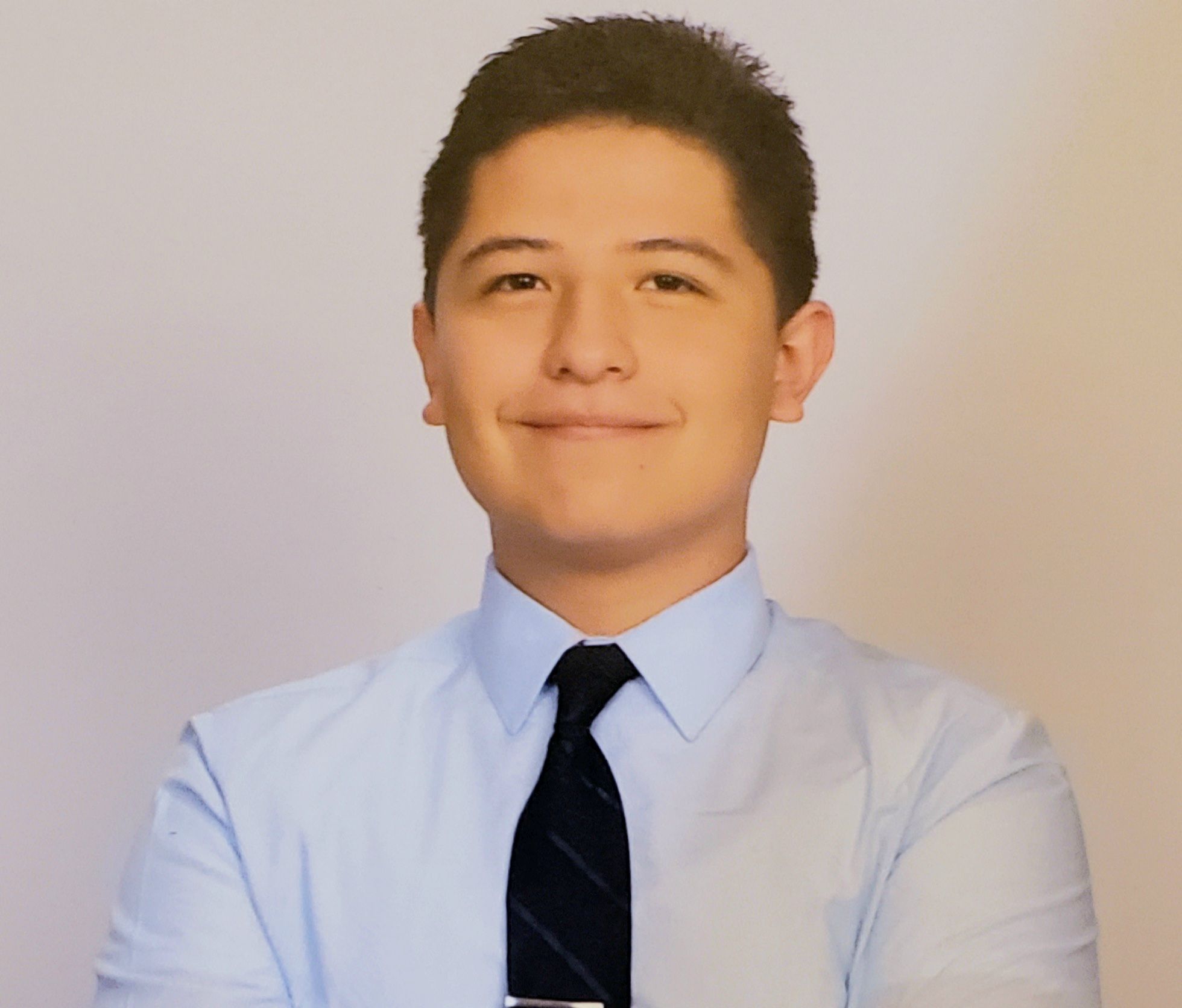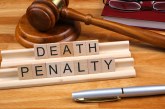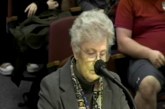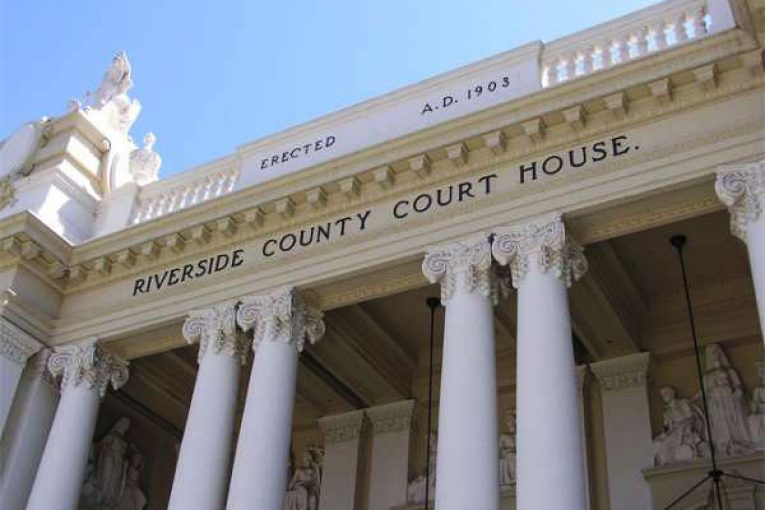
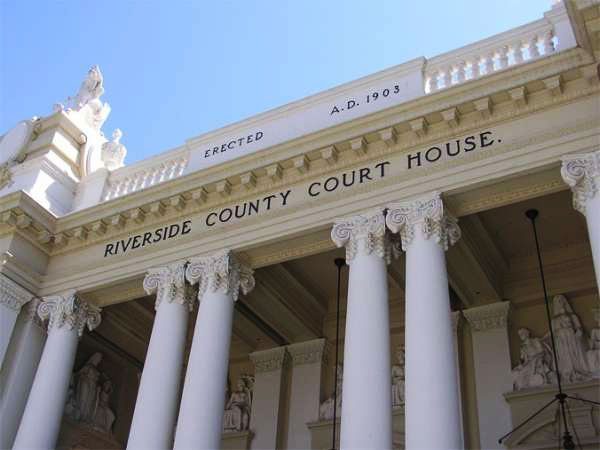
By Keana Fortier-Sauray and Alexander Ramirez
RIVERSIDE, C.A. – The second degree murder jury trial of Thomas Scott lurched to a close Friday here in Riverside County Superior Court with closing statements from Deputy District Attorney Kevin Beecham and Scott—who is representing himself at trial.
Scott said he didn’t do it and police were out to get him—the prosecution said an 18-year old boy was shot in cold blood in the chest after his attempt to de-escalate an altercation with Scott.
DDA Beecham charged after Scott shot the boy, he walked away with no attempt to try and help him or call 911.
Two friends of the victim also witnessed their friend get shot and slowly die in front of him, said DDA Beecham.
He continued by acknowledging that there were some discrepancies in credibility between the friends’ statements when they testified. He told the jury that is expected from two people that did not try to collude or try to manufacture evidence. 
DDA Beecham stated Scott’s mother “was all over the place” and had all sorts of credibility problems. When she testified, he said, she claimed that when the police knocked at her door, she told them everything, but she claimed that the police were not really interested and didn’t write anything down.
However, DDA Beecham argued that the recordings showed the complete opposite to what she testified to.
He continued by noting in November 2018, four months after Scott testified, a report by a police officer showed that Scott went to the police station as a “concerned citizen” and reported a photo of another man on Facebook holding a gun, and it happened to be the exact gun that Keenen testified to as the murder weapon.
DDA Beecham began to question why Scott was going to the police to show them the photo and convince the police that they should go arrest another man and find the weapon. When asked for additional information about the photo, Scott was not cooperative and could not give any further information.
DDA Beecham continuously pointed out that all of the witnesses Scott called in to testify were insignificant and not credible individuals. He mentioned Stephanie XXX, and stated that “her name is literally a lie” and that “she is walking around as a literal liar with that name.”
DDA Beecham stated that is not even the beginning of her credibility issues, claiming she has many felony convictions, and, during a prior investigation she falsely accused a neighbor of blowing up a house and raping her.
DDA Beecham said her multiple attempts to throw off the firefighters during that investigation were the result of a lie which ultimately made her a non-credible witness.
DDA Beecham argued he “beat him [Scott] up on the stand,” adding he will not apologize for that because Scott is a person who manufactured an alibi, wrote investigative reports, and flew out a person from Texas to feed the jury lies.
DDA Beecham continued, “You heard the jail calls, you heard his confession, I can’t believe that anyone of you here are even doubting whether he was at that scene.”
DDA Beecham said Scott talked about everything, including stating “he didn’t mean to shoot the kid, but they were being belligerent and they were trying to take stuff from his bag, and they were high off all types of drugs.”
This is where the case was for five and a half years, until Dec. 30, 2021, when Scott argued that he made a false confession.
DDA Beecham complained that “you should be as offended as I was… it is an insult to your intelligence.” He questioned why Scott went to such lengths to commit perjury, and argued that it is because Scott knows there is no legitimate case for self-defense.
DDA Beecham exclaimed, “It is not my burden to prove that Scott intended to kill anyone.”
He explained, “This is not an intent to kill murder, it is implied malice, second degree murder,” noting that for implied malice to be true the act must be intentional, not the consequences. The pulling of the trigger was intentional, not the killing.
“Did Scott act in conscious disregard for human life?” asked DDA Beecham. He continued that “he discarded a weapon in a residential area” and exclaimed “you would think if it was unintentional or he didn’t mean to do it, he would stop and try to help the man out.”
DDA Beecham stated “Scott is guilty of second-degree murder,” adding that because of Scott’s “reckless and careless, extremely dangerous activity,” an 18-year-old boy lost his life.
Scott’s closing arguments, in defense of himself, continued for about an hour and a half.
Scott opened by interpreting the concept of Occam’s razor by saying that he believes “the simplest and most obvious explanation of events is usually the correct one.”
He added the case against him was built on false and unsubstantial information and improper conduct conducted by the Riverside Police Dept. This included Scott questioning the validity of surveillance of the parking lot and how trustworthy a poor view can be.
As for the actual events of the night of the incident, “This wasn’t a shoot first and ask questions later,” Scott said. “As you now know, a person is not required to retreat if a threat presents itself. That person is entitled to stand his ground,” he continued in his argument to the jury.
Scott said that whoever the shooter was told the victim and his two friends during the confrontation to “back up” multiple times before providing a warning shot and, thus, “it wasn’t murder, ladies and gentlemen. It’s most definitely self-defense and indeed, a reasonable one, too.”
This whole incident, Scott says, is indicative of a problem with police these days, noting people like him are targets of profiling and “they are looking for the weakest members of the herd.
“That is I, Thomas Ryan Scott, have been trapped for so long because prosecutors are like snipers who only have one shot before they have to cut and run whether they hit or convict their target. It’s all the same for them. It’s not like they’re actually interested in the truth or justice, they don’t care.”
Scott continued to say the police should be held accountable for their actions and explicitly mentioned the detectives on his case and previous testimonies in court.
When it comes to Scott’s previous time in jail, he said that it took time for him to get the proper guidance in life after his poor upbringing but now aims to help his two sons and maintain employment.
One point of contention that Scott noted was whether or not the victim and his friends had gang ties or not, and he pointed to testimony from one of the victim’s friends where they said they were part of SDP, or Smoke, Drink, Paint, to which the prosecution previously made the point that this isn’t evidence of gang activity.
But Scott disagreed.
Scott also pointed to conflicting accounts provided by the testimony from both friends that may lead to both being unreliable, like a common use of “I don’t know” and a suspect profile of around 5’10 whereas Scott said he is 5’8.
He even said that the kids that night were “feeling themselves” and thus couldn’t fathom something like this happening, even though he said they “surrounded the shooter (whoever they may be) and this young man took a round to his chest.”
Once again, Scott brought up the usage of a warning shot and saying “back up” and how that doesn’t make sense with the witness testimonies suggesting a random man randomly walking up to them.
Scott claimed that “the People’s mistake was focusing on my witnesses’ priors, including my own,” as opposed to the details of the case.
The validity of one of the witness testimonies was also questioned by Scott when the testimony included a profile of a white, bald man with big ears, which would match Scott’s profile, and the witness previously referred to Scott as the defendant, but when asked directly, denied knowing who Scott was.
Scott continued to question the whole investigation and the ethics of the detectives involved.
Differing profiles, conflicting testimonies, and the wanting of a scapegoat all point to his innocence, Scott said, adding that, whoever the suspect was that night, was acting in self-defense against three friends who “wanted violence.”
He even raised the possibility that there was a separate suspect known to the individuals who matched their profiles but was thrown out by detectives, even though it was a possible lead.
“You the jury must, of necessity, evaluate the importance of this missing evidence. It is the context, the accuracy, and the credibility of these witnesses, but is it enough to convince you beyond a reasonable doubt? Is it so overwhelming that I’m guilty? Has this case, from the beginning till the end, just screamed out I’m guilty?’
Much of the remaining arguments focused on Scott accusing the police of trying to find the easy way out of the case and trying to “pin” the crime on someone who is easy to pin it on and, although he agreed what happened that night was sad, once again he brought up to the jury that self-defense justifies reasonable force against an attacker if a person fears for their life.
Before finishing, Scott once again reaffirmed his innocence by saying, “If I told you that the walls of this courtroom are purple, does that mean that these walls are purple? So when you deliberate and view my statement, ask yourselves the same question. If I say I did it, does that actually mean I did it?”
This appears to reference a phone call Scott made in prison where the prosecution claims Scott admitted to being at the incident on the night of participating in the shooting.
Finally, Scott thanked the jury for their time and for giving him the opportunity to present his side of the story.
As for the rebuttal from DDA Beecham, he stated that these kids were normal teenagers that liked to drink, smoke and “hang” but, he added, that doesn’t make them terrible people. He added that it certainly does not make them violent and does not make the victim a person that should be shot.
The prosecutor noted Scott has no alibi during the shooting, and phone detail records show that he was near or around the crime scene during the time of the shooting.
DDA Beecham stated Scott can’t blame anyone but himself. He was the one that confessed to the killing. He added Scott was not coerced in any way to confess and that he made the confession of his own free will.
DDA Beecham said Scott told police to turn off the recording prior to his statement.
“If he wanted to send the police on a wild goose chase for a false confession then why would he tell them to turn off the recording,” said DDA Beecham.
Noting Scott claimed the shooter shot in self-defense, DDA Beecham stated that he can’t claim the shooter shot in self-defense if Scott himself claimed he is not the shooter.



